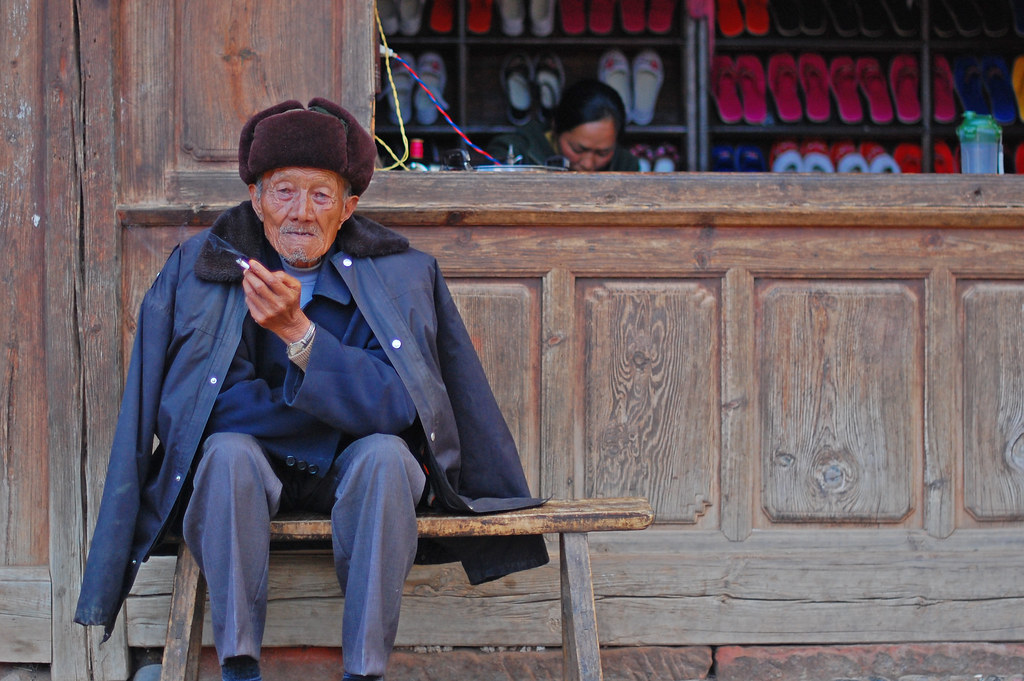
An old man sitting on the bench. Image Credit: Flickr / timquijano
As part of research into the lives of first generation and long-term migrant workers[2], Globalization Monitor surveyed 651 workers about social insurance and plans for retirement[3]. The migrant workers were living and working in 5 cities, including Dongguan and Huizhou in Guangdong province (27%), Fuzhou in Fujian province (25%), Yangzhou in Jiangsu province (25%) and Chongqing municipality (23%). The majority of the workers were factory workers, working in car and motorbike manufacturing, electronics, shoes, garments and glasses factories; while some worked in logistics, the service sector or as construction workers.
The survey looked at social insurance coverage, workers’ views of the social insurance arrangement and the challenges they had faced as well as preparations and plans for after they had retired.
Download the report:
Summary
As Chinese migrant workers approach retirement age, a lack of adequate social insurance and especially a lack of a pension is a significant and increasing concern for many workers who worry about how they will support themselves in their old age. While some workers do not have a pension at all, as employers fail to make contributions in accordance with the law, others have to work beyond the official retirement age in order to have been contributing long enough to qualify. Those that work far from home, move from place to place or whose jobs are more temporary, a stable pension is even more difficult to secure. Although many look forward to returning home to the countryside, higher costs and inadequate protections are challenges for those who might otherwise establish roots in the city. Even amongst those who plan to return home, many continue to worry about the financial difficulties they or their families might face in their old age
 Europe Solidaire Sans Frontières
Europe Solidaire Sans Frontières


 Twitter
Twitter Facebook
Facebook